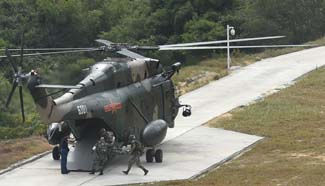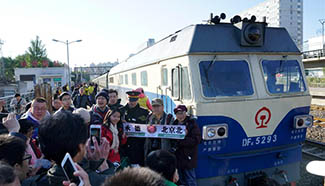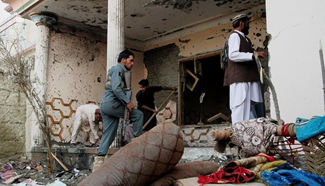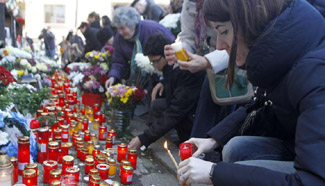BEIJING, Oct. 31 (Xinhua) -- China's top legislature began deliberating a draft law on nuclear safety Monday.
The draft, currently being examined at the bimonthly session of the National People's Congress (NPC) Standing Committee, specifies safety standards for nuclear facilities; emergency planning and response systems; and rules for information disclosure.
It also details the responsibilities of staff and supervisory bodies, and sanctions for those who fail in their duties.
The legislation aims to enable China to utilize nuclear energy safely; ensure the security of facilities and materials; and prevent and cope with accidents while protecting employees, the general public and the environment.
Safety is the top priority of the nuclear cause, said Zhang Yunchuan, vice chairman of the NPC's Environment Protection and Resources Conservation Committee, in a report to the session.
The legislation will strengthen supervision and increase public confidence in nuclear safety, he said.
It will also reassure the world about China's safety management, and encourage international cooperation in this regard, he said.
By the end of June this year, 31 nuclear power generating units were operating on the Chinese mainland, with a total installed capacity of 29.69 million kilowatts. Another 23 units with a capacity of 26.09 million kilowatts are under construction.
By 2020, China will have the second-most nuclear power generating units in the world, Zhang said.
According to the draft, nuclear facility operators and nuclear material owners must take major safety responsibilities, while institutions that help with the facilities' site selection, design, construction and test-runs, or provide equipment and other services, should also be held responsible.
The State Council has nuclear safety agencies for supervision and management.
The draft proposes the establishment of a three-tier emergency response system: at the national to local level; in institutions that operate the nuclear facilities; as well as an emergency response fund to ensure financial support in case of accidents.
According to the draft, operators must apply for certificates or undergo relevant government approvals before selecting sites, construction, initial fuel loading and scrapping any facilities.
It especially noted that when scrapping nuclear facilities, operators must reduce the radiation level of buildings, systems and equipments to a safe standard.
Local governments should widely solicit opinions among people who may be affected by the operation of nuclear facilities.
They should also publicize information related to nuclear safety, disclosing the general safety situation and the radioactive environment quality via government notice or website, it said.
"Authorities should enhance their awareness of information publicity in this regard, ensuring the people's right to know and making their voice better heard," said Wang Jin, a law professor with Peking University.
Wang said the draft law, if passed, will fill the blank in the legislation of the sector, and would boost public confidence in the country's nuclear safety.











